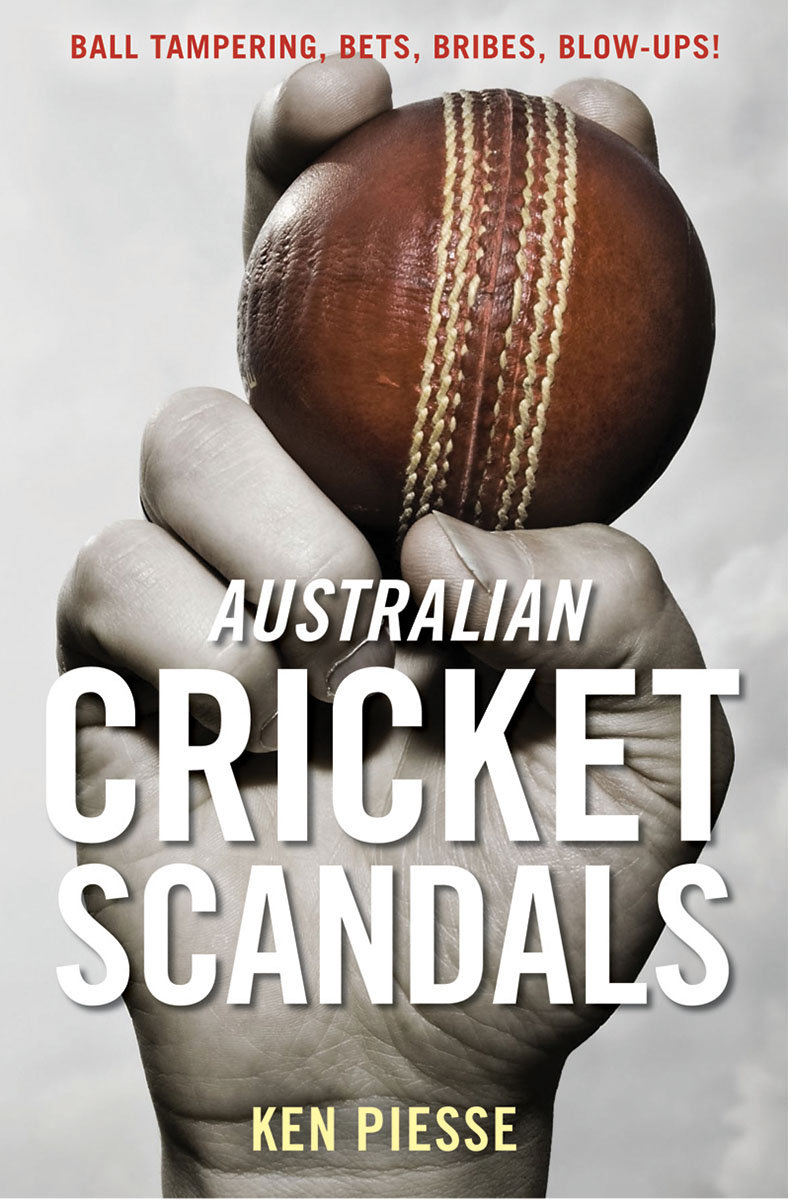STEVE SMITH shamed himself and the game and deserved his 12 months suspension, says author KEN PIESSE in his soon-to-be-published new book Australia’s Cricket Scandals:
PLAYER power has always imperiled cricket. Liberties are taken and the good of the game and its fans often ignored. In 2018, less than 12 months after the elite Australian cricketers went on strike and won, a bursting, narcissistic confidence emanated. Some senior players felt themselves untouchable and above the law.
The results were calamitous, Australia’s culture of disrespecting opponents and win-at-all-costs arrogance bubbling out of control during the autumn-time Tests in South Africa.
Rarely before had the spirit of cricket been so flagrantly abused as in the opening two 2018 Tests between two of the world’s elite XIs. It was war without weapons.
In Durban, where the ball swings according to the time of the tides, Australian vice-captain David Warner’s reaction to the run out of AB de Villiers for a duck was vulgar and insulting. In the excitement of the moment, clean-skin Nathan Lyon all but dropped the ball on de Villiers’ chest as he lay prostrate and crestfallen at the non-striker’s end, victim of his own slip and Warner’s reflexes. Relations between the teams, always terse, zeroed out of control, the vilification of Aiden Markram, South Africa’s opener in his first series against the Australians, rude and relentless. Those manning the pitch microphones were astonished by Australia’s brazen attitude. This wasn’t mental disintegration. It was abuse at its most hostile, guaranteed to upset and divide. The Australians asked for the microphones to be turned down. And the abuse became an uncontrollable torrent. It seemed little had changed in four years since Faf du Plessis likened playing against Australia to opposing a pack of wild dogs.

At teatime on the penultimate day at Kingsmead, Warner and South Africa’s Quinton de Kock traded personal barbs in the player’s stairwell before Warner was corralled inside, the South African having disparaged Warner’s wife Candice, a mother-of-two.
Earlier, South Africa’s champion de Villiers was the only one to survive Mitchell Starc’s high-speed reverse swing which decimated South African middle-order. His 71 not out was worth a century every other day. Late in Starc’s irresistible spell, de Villiers accosted Warner, claiming the Australians were ‘doing something to the ball’, so devilishly late was Starc’s swing.
“Are you accusing me of cheating, AB?” Warner was alleged to have said.
With his thumb and index finger heavily bound in adhesive tape, his exaggerated, ultra-vigorous shining of the ball had triggered suspicions way beyond South Africa’s homeroom.
In Port Elizabeth, where South Africa squared the series, its headstrong fast bowler Kagiso Rabada shouldered Australia’s captain Steve Smith and was duly suspended for two matches — only for the ban to be reversed on appeal. The Australians were amazed and dismayed. Rarely before had cricket got so physical or tempers veered so dangerously out of control. And there was more to come…
Edited excerpts from Ken Piesse’s 55th cricket book, Australia’s Cricket Scandals (soft covers $30), reproduced with permission. Early-bird orders for the book, to be released in spring, should be directed to cricketbooks.com.au
KEN PIESSE has covered cricket and football for more than 30 years in Melbourne. Despite that setback, Ken has written, published and edited 86 books on cricket and AFL football to become Australian sport’s most prolific author.
His latest cricket book is David Warner, The Bull, Daring to be Different with Wilkinson Publishing, out now
www.cricketbooks.com.au



Discussion about this post